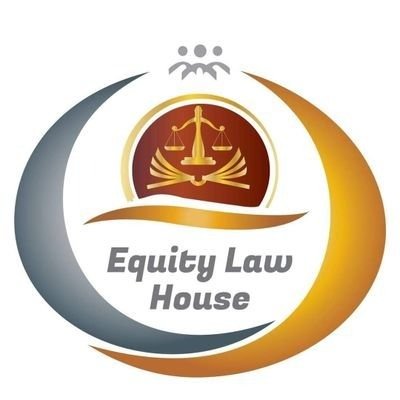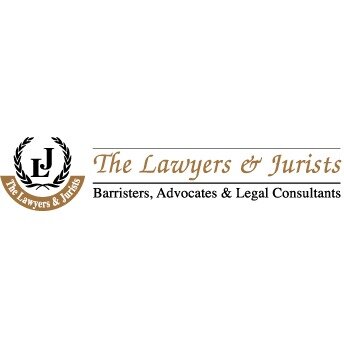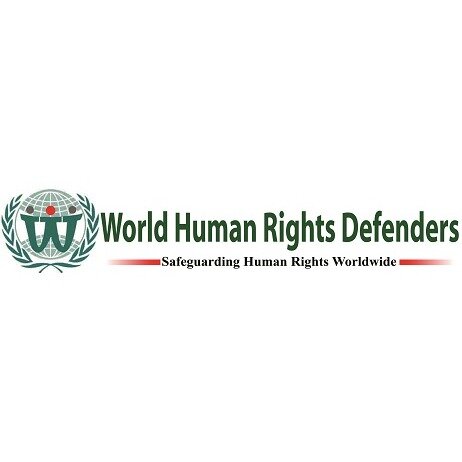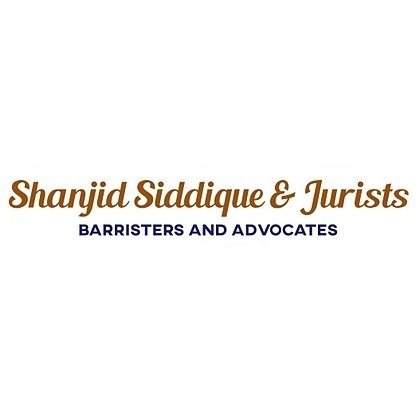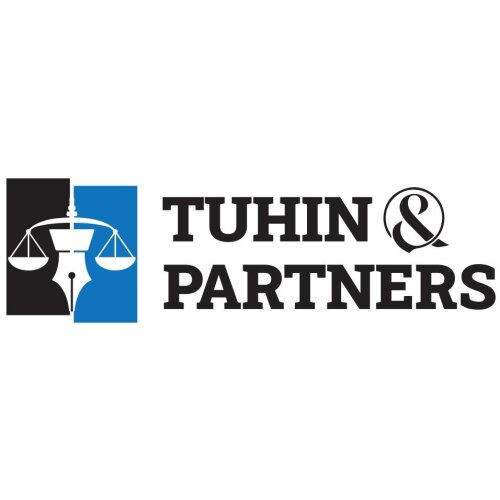Best Civil & Human Rights Lawyers in Bangladesh
Share your needs with us, get contacted by law firms.
Free. Takes 2 min.
Or refine your search by selecting a city:
List of the best lawyers in Bangladesh

Amjad & associates, Advocate of Nilphamari Judge Court
15 minutes Free ConsultationBangladesh Civil & Human Rights Legal Questions answered by Lawyers
Browse our 1 legal question about Civil & Human Rights in Bangladesh and read the lawyer answers, or ask your own questions for free.
- Urgent passport creation/recovery
- Hello, I'm urgently seeking legal guidance for my friend in Dhaka, who needs to secure their passport under dangerous circumstances. Their situation: They are trying to rebuild their life after escaping their abusive father, who previously confiscated their passport to control them. A critical step for their future is sitting... Read more →
-
Lawyer answer by Tobarrak Law Chamber
In such a situation, the matter should be handled through legal and administrative safeguards prioritising personal safety. Your friend may immediately file a General Diary (GD) or Police Report documenting the abuse and the confiscation of the passport, which can...
Read full answer
About Civil & Human Rights Law in Bangladesh
Civil and human rights in Bangladesh are integral to preserving the dignity and freedoms of all individuals. The Constitution of Bangladesh enshrines fundamental rights such as equality, freedom of speech, and the right to life and personal liberty. These rights are further bolstered by international conventions and treaties that Bangladesh is a party to, such as the UN Universal Declaration of Human Rights and various other human rights treaties.
However, despite these legal protections, individuals may still face challenges and violations concerning their civil and human rights. Legal frameworks are in place to address discrimination, protect minorities, and ensure that all citizens can assert their rights, but navigating these can often require legal expertise.
Why You May Need a Lawyer
There are several situations in which individuals might need legal assistance related to civil and human rights in Bangladesh:
- Discrimination: Facing prejudice or discrimination based on race, gender, religion, or any other status.
- Freedom of expression: Issues related to censorship, free speech, or media freedom.
- Privacy violations: Concerns about surveillance, data protection, or personal privacy breaches.
- Arbitrary arrests: Unlawful detention or arrests without due process.
- Violence and abuse: Protection from domestic violence, police brutality, or any form of torture.
- Land and property rights: Disputes over property ownership, land acquisition, or forced evictions.
- Denied access to services: Challenges in accessing healthcare, education, or other essential services.
Local Laws Overview
Bangladesh’s legal system is primarily based on common law, and several statutes and regulations govern civil and human rights. Key aspects include:
- The Constitution of Bangladesh: Provides the framework for protecting fundamental rights and freedoms.
- Bangladesh Penal Code: Outlines offenses and penalties, including those against personal rights and freedoms.
- Special Powers Act: Although controversial, it allows for preventive detention under specific circumstances.
- Right to Information Act 2009: Ensures transparency and access to public information for all citizens.
- Child Marriage Restraint Act: Aims to prevent child marriages and protect the rights of minors.
- Domestic Violence (Prevention and Protection) Act: Addresses protection from domestic abuse and violence.
Frequently Asked Questions
What are my fundamental rights according to the Bangladesh Constitution?
The Bangladesh Constitution guarantees various rights including equality before the law, freedom of movement, assembly, association, thought, and speech, among others.
How can I file a complaint if my rights have been violated?
You can file a complaint with the National Human Rights Commission or initiate legal proceedings in the appropriate court of law.
Is legal aid available for those who cannot afford it?
Yes, Bangladesh has a system of legal aid under the Legal Aid Services Act that provides financial help and free legal services to eligible individuals.
What protections exist for women facing domestic violence?
The Domestic Violence (Prevention and Protection) Act provides protection, relief, and rehabilitation to women facing domestic violence.
How can I protect my personal data and privacy?
While comprehensive data protection laws are still developing, general legal principles alongside the Information and Communication Technology Act provide some measures for privacy protection.
Can freedom of speech be restricted in Bangladesh?
While freedom of speech is protected, there are certain limitations regarding defamation, state security, and public morality.
How do I obtain information under the Right to Information Act?
You can file an application with the relevant public authority to access information, with certain exceptions for classified data.
What legal avenues are available against unlawful detention?
Individuals can file habeas corpus petitions in the High Court Division of the Supreme Court to challenge unlawful detention.
Are there specific protections for minority communities?
The Constitution and other laws promote equality and prohibit discrimination against minority communities, ensuring their protection.
What are my rights if I face discrimination at work?
Laws protect against workplace discrimination, and employment tribunals can adjudicate grievances related to unfair treatment.
Additional Resources
Here are some resources and organizations that can provide further assistance and information:
- National Human Rights Commission, Bangladesh (NHRCB): A statutory organization working to promote and protect human rights in Bangladesh.
- Bangladesh Legal Aid and Services Trust (BLAST): Offers free legal aid and advice to marginalized communities.
- ASK (Ain o Salish Kendra): A legal aid and human rights organization in Bangladesh providing advocacy and legal support.
- Bangladesh Government's Ministry of Law, Justice, and Parliamentary Affairs: Provides resources and information on legal rights and services.
Next Steps
If you think you need legal assistance in civil and human rights matters, consider the following steps:
- Identify the Issue: Clearly understand the specifics of your situation and how they relate to civil and human rights.
- Contact an Organization: Reach out to local human rights organizations or legal aid services for initial advice and support.
- Consult a Lawyer: Engage with a lawyer who specializes in civil and human rights for professional legal guidance.
- Gather Documentation: Collect all relevant evidence and documents that may support your case.
- Know Your Rights: Educate yourself on your rights and the legal remedies available to you.
- Follow Legal Procedures: Be prepared to follow through legal channels as advised by your legal counsel.
Act promptly to ensure your rights are protected and any violations are addressed effectively.
Lawzana helps you find the best lawyers and law firms in Bangladesh through a curated and pre-screened list of qualified legal professionals. Our platform offers rankings and detailed profiles of attorneys and law firms, allowing you to compare based on practice areas, including Civil & Human Rights, experience, and client feedback.
Each profile includes a description of the firm's areas of practice, client reviews, team members and partners, year of establishment, spoken languages, office locations, contact information, social media presence, and any published articles or resources. Most firms on our platform speak English and are experienced in both local and international legal matters.
Get a quote from top-rated law firms in Bangladesh — quickly, securely, and without unnecessary hassle.
Disclaimer:
The information provided on this page is for general informational purposes only and does not constitute legal advice. While we strive to ensure the accuracy and relevance of the content, legal information may change over time, and interpretations of the law can vary. You should always consult with a qualified legal professional for advice specific to your situation.
We disclaim all liability for actions taken or not taken based on the content of this page. If you believe any information is incorrect or outdated, please contact us, and we will review and update it where appropriate.
Browse civil & human rights law firms by service in Bangladesh
Bangladesh Attorneys in related practice areas.
Browse civil & human rights law firms by city in Bangladesh
Refine your search by selecting a city.




